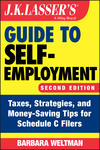No Penalty Exception for Paying Income Taxes
Taxpayers who are under age 59½ and withdraw money in their retirement accounts to pay federal and state income taxes are liable for the 10% early distribution penalty. There is no penalty exception for tax payments. That’s what a couple learned in a recent case.
The couple owed federal and state income taxes. In 2008, they withdrew $69,644 from an IRA and used $6,834 to pay 2004 state income taxes and $9,796 to pay 2004 federal income taxes. They included the distribution in gross income but did not pay the 10% penalty. In Tax Court they argued that the court should create two additional penalty exceptions: one for having reasonable cause for taking a distribution and one for using a retirement plan to pay back taxes.
The court refused to accept the taxpayers’ suggestions (Pritchard, TC Memo 2017-136). The exceptions to the 10% early distribution penalty are created by Congress, not the courts. The Tax Court cannot simply expand the list of penalty exceptions. In prior decisions, the court refused to create a penalty exception for financial hardship, no matter how severe.
Note: There is, however, an exception from the penalty for an IRS levy. In other words, if the couple had waited until the IRS levied on the IRA to cover back taxes, no penalty would have been due.
Trust
An arrangement under which one person transfers legal ownership of assets to another person or corporation (the trustee) for the benefit of one or more third persons (beneficiaries).



